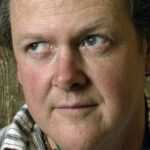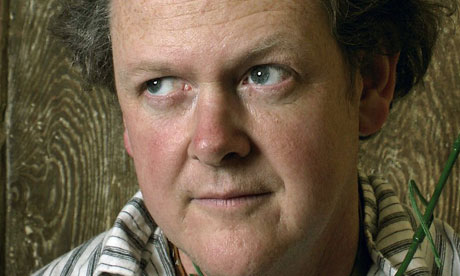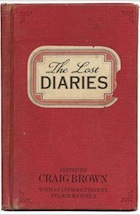Balder the beautiful
Is dead, is dead,
Anita Mathias: Dreaming Beneath the Spires
Anita Mathias's Blog on Faith and Art

Owen Barfield noted that there were three Lewises–Lewis, the scholar, whose critical books are still read today; Lewis, beloved children’s and science fiction writer; and Lewis, the Christian writer and apologist. So multi-sided a writer: it’s astonishing. Lewis also wrote a beloved memoir, Surprised by Joy entwining all these aspects of his personality.
In Surprised by Joy, we read that becoming a Christian for Lewis, was essentially a recovery of the imagination and creativity, a recovery of the child-like sense of wonder at beauty, a recovery of joy. He describes the cold wind which blew from the North, the “strange cold air” of Norse mythology that captivated him (and totally captivated me as a child.)
I had become fond of Longfellow’s “Saga of King Olaf”: fond of it in a casual, shallow way for its story and vigorous rhythms. But then, and quite different from such pleasures, and like a voice from far more distant regions, there came a moment when I idly turned the pages of the book and found the unrhymed translation of “Tegner’s Drapa”, and read:
I heard a voice that cried
Balder the beautiful
Is dead, is dead,
I knew nothing about Balder; but instantly I was uplifted into huge regions of the northern sky; I desired with almost sickening intensity something never to be described (except that it is cold, spacious, severe, pale and remote) and then…found myself at the very same moment already falling out of that desire and wishing I were back in it.
* * *
In becoming a Christian, he recovers the things which were most precious to him– imagination, creativity, wonder, beauty, poetry, literature, mythology—all enhanced.
All which I took from thee I did but take,
Not for thy harms.
But just that thou might’st seek it in my arms.
All which thy child’s mistake
Fancies as lost, I have stored for thee at home”
Francis Thompson, The Hound of Heaven.
W.B. Yeats observes in his autobiography that when he wanted to know if a man could be trusted he watched to see if he associated with his betters (his intellectual and creative superiors).
Lewis’s road to faith–as befits a bookish man, much of whose life was lived in, and mediated and refracted through books– was through the ivory tower of reading and other writers. What a melange of writers brought him to faith—Plotinius!!, Phantastes by George Macdonald, which baptized his imagination, and introduced him to the feel of “holiness,” and G.K. Chesterton’s The Everlasting Man, a portrait of the central position of Christ in human history, which baptized his intellect. “In reading Chesterton, as in reading MacDonald, I did not know what I was letting myself in for. A young man who wishes to remain a sound Atheist cannot be too careful of his reading. . . . God is, if I may say it, very unscrupulous.” Lewis comments.
He was a man most blessed in his friends. Owen Barfield rids him of his “chronological snobbery,” the “uncritical acceptance of the intellectual climate common to our age and the assumption that whatever has gone out of date is on that count discredited.”
During a now-famous all night walk, Tolkein and Dyson convince him that Christianity had elements of the myths he loved, the God who died to redeem, except it was a true myth, the ultimate story in which alone the longings and tales of redemption in all great myths were historically realized. “The story of Christ is simply a true myth,” he says he discovered that night, “a myth working on us in the same way as the others, but with this tremendous difference that it really happened.”
As Adam Gopnik says in The New Yorker, “This was a new turn in the history of religious conversion. Where for millennia the cutting edge of faith had been the difference between pagan myth and Christian revelation, Lewis was drawn in by the likeness of the Christian revelation to pagan myth. Even Victorian conversions came, in the classic Augustinian manner, out of an overwhelming sense of sin. Cardinal Manning agonized over eating too much cake, and was eventually drawn to the Church of Rome to keep himself from doing it again. Lewis didn’t embrace Christianity because he had eaten too much cake; he embraced it because he thought that it would keep the cake coming, that the Anglican Church was God’s own bakery.”
Faith for Lewis was a recovery of the sense of childlike joy and possibility, of infinite worlds within worlds. I must say it feels the same to me.
As a believer, he can return to the magical lands of his childhood, and in a sense see them for the first time. As he writes in “Surprised by Joy” “My first taste of Oxford was comical enough. I had made no arrangements about quarters and, having no more luggage than I could carry in my hand, I sallied out of the railway station on foot to find either a lodging-house or a cheap hotel; all agog for “dreaming spires” and “last enchantments.” My first disappointment at what I saw could be dealt with. Towns always show their worst face to the railway. But as I walked on and on I became more bewildered. Could this succession of mean shops really be Oxford? But I still went on, always expecting the next turn to reveal the beauties, and reflecting that it was a much larger town than I had been led to suppose.
Only when it became obvious that there was very little town left ahead of me, that I was in fact getting to open country, did I turn round and look. There behind me, far away, never more beautiful since, was the fabled cluster of spires and towers. I had come out of the station on the wrong side and been all this time walking into what was even then the mean and sprawling suburb of Botley. I did not see to what extent this little adventure was an allegory of my whole life.
He looks back and recovers joy. In fact, I believe the things we loved and which turned us on as children are treasure-hunt clues hidden in our childhood by a good God–clues to the destiny and life’s work he has planned for us.
Gopnik goes on to say that his new-found faith got Lewis “to write inspired scholarship, and then inspired fairy tales. The two sides of his mind started working at the same time and together.”
And that is always how it is when one finds a voice, or finds oneself as a writer. Things one has thought, and felt, and read, and learned, and suffered and dreamed suddenly coalesce in a magical amalgam.
And in his forties, Lewis begins to work in fantasy, first science fiction, and then in his late forties, he begins to write very quickly and “almost carelessly” about the magic world of Narnia, which, as Gopnik puts it, “includes, encyclopaedically, everything he feels most passionate about: the nature of redemption, the problem of pain, the Passion and the Resurrection, all set in his favoured mystical English winter-and-spring landscape.”
New writing, a new thing, in one’s late forties, forged through a combination of one’s natural intelligence, gifts and interests, touched and sanctified by religious faith and love. What a very, very inspiring story!
“Roots of Bitterness” and Water from the Sanctuary
Hebrews 12 14-15
Make every effort to live in peace with all men
and to be holy;
without holiness no one will see the Lord.
15See to it that no one misses the grace of God
and that no bitter root grows up
to cause trouble
and defile many.
Here is a beautiful verse I have been thinking about for the last few weeks.
Make every effort to live in peace with all men.
Interesting. Not “live in peace with all men,” but “make every effort to live in peace with all men.”
There is a time for confrontation when necessary. When? When someone else’s sin is affecting you, for one. What about on a larger sphere, in a church, for instance, or an organization? Sometimes–and one needs to make doubly sure that this is indeed the case–one is picked to be the one to say something. By and large, the prophets in the Old Testament who were picked to say something could have done without the responsibility: Moses, Jeremiah, Isaiah, for instance. They were scared. So make every effort to live in peace with all men. When something is patently wrong, and everyone seems to be silent, IF you hear the Lord’s voice telling you that you are the one to speak up, and see a change happen, then it would be disobedience not to speak.
* * *
And to be HOLY. Without holiness, no one will see the Lord.
Holiness, a beautiful and old-fashioned word. Can one handle confrontation with holiness? Gosh, it’s difficult, it’s beautiful when one manages it, and one can only do with a lot of prayer.
I–and this blog!!–are pleased to be in at 17, albeit down a place.


The probable, the marvelous-taken-as-fact, the marvelous-known-to-fiction—such is the triple equipment of the post-Renaissance poet. Such were the three worlds which Spenser, Shakespeare, and Milton were born to. . . . But this triple heritage is a late conquest. Go back to the beginnings of any literature and you will not find it. At the beginning the only marvels are the marvels which are taken for fact. . . . The old gods, when they ceased to be taken as gods, might so easily have been suppressed as devils. . . . Only their allegorical use, prepared by slow developments within paganism itself, saved them, as in a temporary tomb, for the day when they could wake again in the beauty of acknowledged myth and thus provide modern Europe with its “third world” of romantic imagining. . . . The gods must be, as it were, disinfected of belief; the last taint of the sacrifice, and of the urgent practical interest, the selfish prayer, must be washed away from them, before that other divinity can come to light in the imagination. For poetry to spread its wings fully, there must be, besides the believed religion, a marvelous that knows itself as myth.
Read more http://www.newyorker.com/archive/2005/11/21/051121crat_atlarge?currentPage=all#ixzz11akQMzso
![]() Bookmark this on Delicious
Bookmark this on Delicious
Finding Your Own Blogging Voice
I have been writing for a while and have definitely found my own distinctive writing voice. Blogging, on the other hand, was a different ball game–putting up your thoughts on the web, for friend and foe alike, raw, unprocessed, unedited. Wow!
How does one find the voice for that? Not too personal, not too boring, not too pompous or distant. Writing for unseen, anonymous readers.
I have been blogging for almost six months, with some success–top 20 in Wikio UK in both culture and literature, high ranks in technorati, and top blog sites. But I had not found my real voice, me. I was not sharing who I really was, just what I thought.
An accident helped me find my own blogging voice. I wrote a post of great interest to the large Christian community to which I belong. I had 1400 page views within a week, 852 of them unique page views (the rest were repeats because of the 60 or so comments.)
And as always happens when you have a sudden spike in page views, most dropped off, but not all. My graph of page views was suddenly on another level.
I suddenly had a real audience–people I knew, whom I worshipped with every Sunday, and met mid-week every week. True, I did not know which individuals, but I suddenly felt I had real people reading my blogs, who somewhat knew me, and were interested in what I had to say.
There is nothing like that for finding one’s real writing or blogging voice.
I have now found my own distinctive blogging voice on two of my blogs, theoxfordchristian.blogspot.com and wanderingbetweentwoworlds.blogspot.com. I still need to find my own voice, who I really am, on my third blog, a literary blog called thegoodbooksblog.blogspot.com.
I think of the pop psychology book popular when I was a teen, “Why am I Afraid to Tell You Who I Am.” It goes on to say, “I am afraid to tell you who I am because you may not like who I am, and who I am is all I have.”
So, a truly good blog, a truly interesting one, is written by someone who is not afraid to tell you who she really is.
![]() Bookmark this on Delicious
Bookmark this on Delicious
Choosing Our Own Address: In Christ
Whoever eats my flesh and drinks my blood remains in me, and I in him.
John 6:56
4Remain in me, and I will remain in you. No branch can bear fruit by itself; it must remain in the vine. Neither can you bear fruit unless you remain in me.
5“I am the vine; you are the branches. If a man remains in me and I in him, he will bear much fruit; apart from me you can do nothing. 6If anyone does not remain in me, he is like a branch that is thrown away and withers; such branches are picked up, thrown into the fire and burned. 7If you remain in me and my words remain in you, ask whatever you wish, and it will be given you. 8This is to my Father’s glory, that you bear much fruit, showing yourselves to be my disciples. John 15
These passages suddenly struck me forcibly a few years ago with the thought that I could choose my own address.
I was free. If I felt angered by people, misunderstood, misused, I didn’t have to dwell in that country–of anger, bitterness, grievance and grudge.
I could choose my own address. I could choose to live in Christ, to dwell there.
I can choose to live in Christ,
Like a fish in the ocean,
An anemone in a tidal pool.
A pea in a pod,
A corpuscle in a bloodstream
Sap in the vine
A molecule in a tear-drop
Marrow in the bone
A baby in the womb
I can choose to live in Christ.
Thank you!


